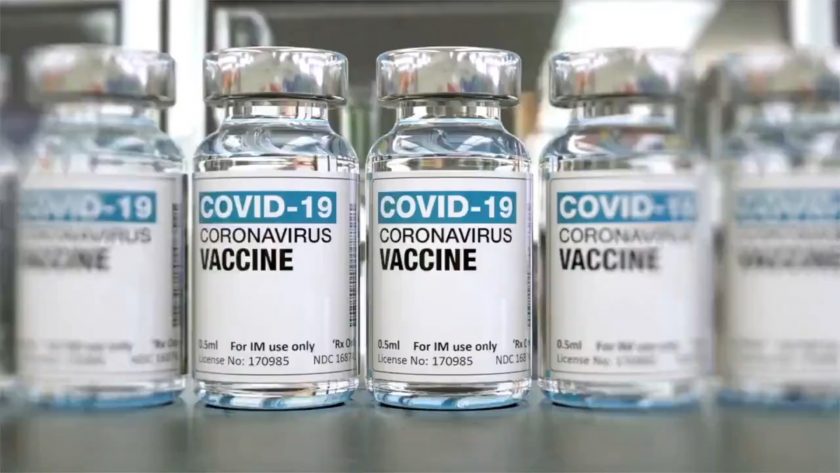First real-world UK data shows Pfizer-BioNTech vaccine provides high levels of protection from the first dose

Data analysed by Public Health England (PHE) shows the Pfizer-BioNTech vaccine provides high levels of protection against infection and symptomatic disease from the first dose.
Early data from PHE’s SIREN study shows a promising impact on infection in healthcare workers aged under 65. Healthcare workers in the study are tested for coronavirus (COVID-19) every 2 weeks – whether or not they have symptoms.
Data shows one dose reduces the risk of catching infection by more than 70%, rising to 85% after the second dose. This suggests the vaccine may also help to interrupt virus transmission, as you cannot spread the virus if you do not have infection.
PHE’s analysis of routine testing data also shows that one dose is 57% effective against symptomatic COVID-19 disease in those aged over 80. This effect occurs from about 3 to 4 weeks after the first dose.
Early data suggests the second dose in over 80s improves protection against symptomatic disease by a further 30%, to more than 85%.
Hospitalisation and deaths rates are falling in all age groups – but the oldest age groups are seeing the fastest decline since the peak in mid-January.
Early data suggests vaccinated people who go on to become infected are far less likely to die or be hospitalised. Overall, hospitalisation and death from COVID-19 will be reduced by over 75% in those who have received a dose of the Pfizer-BioNTech vaccine.
The risk of dying in those aged over 80 is less than half (56%) in vaccinated cases compared to unvaccinated cases, at least 14 days after receiving the first dose.
Those over 80 who develop COVID-19 infection after vaccination are around 40% less likely to be hospitalised than someone with infection who has not been vaccinated.
These high levels of protection are also seen against the variant of concern (B.1.1.7) first identified in South East England in December 2020.
While the data on infection, hospitalisation and death is promising, PHE will continue to observe these trends closely over the coming months to ensure firmer conclusions can be made.
PHE is also monitoring the real-world impact of the AstraZeneca vaccine and will publish these findings in due course – but early signals in the data suggest it’s providing good levels of protection from the first dose.
Dr Mary Ramsay, Head of Immunisation at PHE, said:
“This is strong evidence that the Pfizer-BioNTech vaccine is stopping people from getting infected, while also protecting cases against hospitalisation and death. We will see much more data over the coming weeks and months but we should be very encouraged by these initial findings.”
“But protection is not complete, and we don’t yet know how much these vaccines will reduce the risk of you passing COVID-19 onto others. So even if you have been vaccinated, it is really important that you continue to act like you have the virus, practice good hand hygiene and stay at home.”
Health Secretary Matt Hancock said:
“This crucial report shows vaccines are working – it is extremely encouraging to see evidence that the Pfizer vaccine offers a high degree of protection against coronavirus.”
“Vaccines save lives, and so it is vital we roll out the vaccine programme as fast as possible, and that as many people as possible take the jab. This new evidence shows that the jab protects you, and protects those around you.”
“It is important that we see as much evidence as possible on the vaccine’s impact on protection and on transmission, and we will continue to publish evidence as we gather it. As we roll out the jab, it is vital people continue to play their role in protecting the NHS by sticking with the rules.”
“This data shows clear protection from the first dose, particularly against severe disease, supporting the decision to maximise the number of people vaccinated with a single dose, as advised by the Joint Committee on Vaccination and Immunisation (JCVI).”
“The current dosing strategy will save more lives by ensuring more people receive protection from severe disease following the first dose.”
“There is also good evidence suggesting that giving the second dose of AstraZeneca later will lead to much higher levels of protection. Offering the booster at 12 weeks will therefore help to ensure longer lasting protection beyond the current restrictions.”
Spotted something? Got a story? Send a Facebook Message | A direct message on Twitter | Email: [email protected]Latest News









